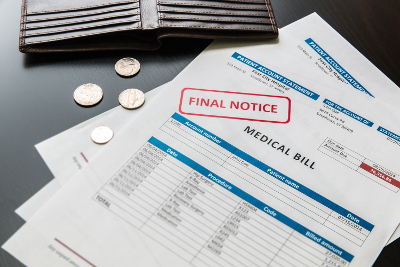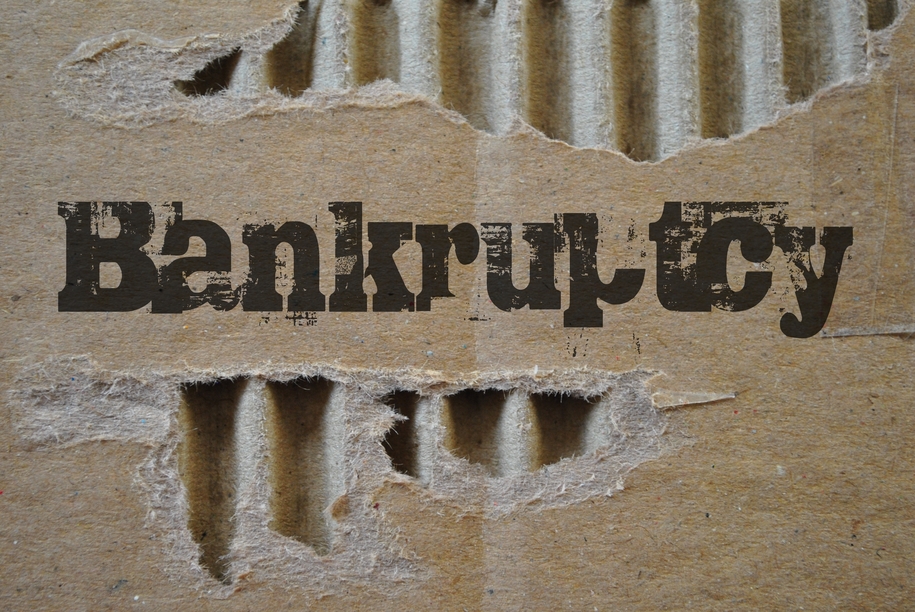Discharging Medical Bills via a Bankruptcy in Arizona
Dealing with illness in the family will be emotionally, physically and financially draining. Anyone who has had to address medical bills over a longer period of time knows that they could accumulate to a massive amount. If you’re in a situation that has you facing the burden of massive medical bills, you may be considering an Arizona bankruptcy as a way out. A bankruptcy could be a viable option for discharging medical bills and here are all of the important details.
Eliminating Medical Bills via a Chapter 7 Bankruptcy
Under a Chapter 7 bankruptcy in Arizona, medical bills qualify as a completely dischargeable kind of debt. Thus, if you manage to pass the means test (you have an income over the past six months that falls beneath the median for the state), you will get to wipe the specific type of debt out completely.
A Chapter 7 bankruptcy eliminates most kinds of medical debt you have accumulated. These debts include:
- All kinds of hospital charges
- Doctor fees or payments to another medical professional
- Dental bills
- Medical collections
Under a Chapter 7 bankruptcy filing, discharging medical bills will be treated as a non-priority unsecured debt. Even if a portion has to be paid out through the bankruptcy, the rest of the medical debt will be wiped out completely.
In Arizona, there’s no limit to the amount of medical bills you can discharge via a Chapter 7 bankruptcy.
Chapter 13 Bankruptcy and Medical Bills
People who do not qualify for a Chapter 7 bankruptcy may still consider a Chapter 13 filing. In this instance, some debt repayment will have to be made but the debtor is still going to benefit from favorable conditions.
Whenever a person files for a Chapter 13 bankruptcy, the medical bills will be added to all other kinds of unsecured and unpaid debts. The amount that the debtor will have to pay back is going to depend on their current income level, nonexempt assets and current expenses.
Under a Chapter 13 bankruptcy, a repayment plan will have to be submitted. This plan will focus on paying back at least a portion of the debt in the coming three to five years.
Each creditor will be given a pro rata portion of the total amount that will be going towards the payment of debt every single month. The term pro rata refers to the proportional division of the payment amount depending on the amount of the individual type of debt.
To qualify for a Chapter 13 bankruptcy, a person should have debt (including medical bills) below certain limits. The limit on unsecured debt is 394,725 dollars. Substantial medical bills can sometimes lead to a larger sum, in which case qualifying for a Chapter 13 bankruptcy is going to be impossible.
The specific limit is going to apply until 2019 when the amount of unsecured debt under Chapter 13 bankruptcies is going to be adjusted for inflation.
Conclusion: Discharging Medical Bills
 If you lose your source of income because of a medical condition and you’ve also accumulated a lot of debt attempting to pay for the treatment, you should consider an Arizona bankruptcy. People like you are entitled to protections under Chapter 7 filing and they will also qualify for the complete discharge of such unsecured debts.
If you lose your source of income because of a medical condition and you’ve also accumulated a lot of debt attempting to pay for the treatment, you should consider an Arizona bankruptcy. People like you are entitled to protections under Chapter 7 filing and they will also qualify for the complete discharge of such unsecured debts.
If you don’t qualify because of the means test, a Chapter 13 bankruptcy is still advisable. You will typically have to pay a smaller amount than what you actually owe and the rest will be discharged in the end of the payment plan.
A bankruptcy attorney will give you a good idea about the current situation and your best option for handling medical bills. An attorney will also know whether filing for bankruptcy at a time is going to be a good idea. People who are currently receiving medical assistance, for example, may want to postpone the filing. Otherwise, they will be facing serious bills in the future.




